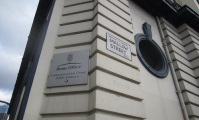The Open Rights Group are convening a meeting as part of the Labuour Party Conference Fringe.

Event Title: PRISM and Mass Surveillance: a Threat to Democracy and Economic Welfare?
Start Date Time: Tuesday 24th September, 2013 at 17:00
End Date Time: Tuesday 24th September, 2013 at 19:00
Weblink: http://www.meetup.com/ORG-Brighton/
They say,
Mass Internet surveillance is now an undisputed fact. Its defenders tell us that it is necessary to protect us from terrorists, criminals and rogue states. But the Snowden revelations show that we face unaccountable indiscriminate surveillance of Internet users on a global scale. This attack on privacy has potential devastating implications for our understanding of democracy.
But is’s not just the foundations of democracy that are under attack. Recent revelations of a systematic weakening of encryption systems by US and UK security agencies undermine fundamental Internet security. These are the basics of trust on the Internet; they are the reason we trust our bank, our credit card payments or Virtual Private Networks not to leak this information to criminals, blackmailers or governments. Thus the real impact will not just be about state security, it may be about economics and the opportunities for increased wellbeing presented by the Internet.
Confirmed speakers: Tom Watson MP, Paul Johnson – Deputy Editor, The Guardian, Javier Ruiz – Campaigns Director, Open Rights Group, and Nick Pickles – Executive Director, Big Brother Watch.
Not sure if Tom’ll make it. He had to miss an earlier meeting today.
I’m told there’ll be free drinks.
Sadly, I’ll not be there, I need to be back in London. …


